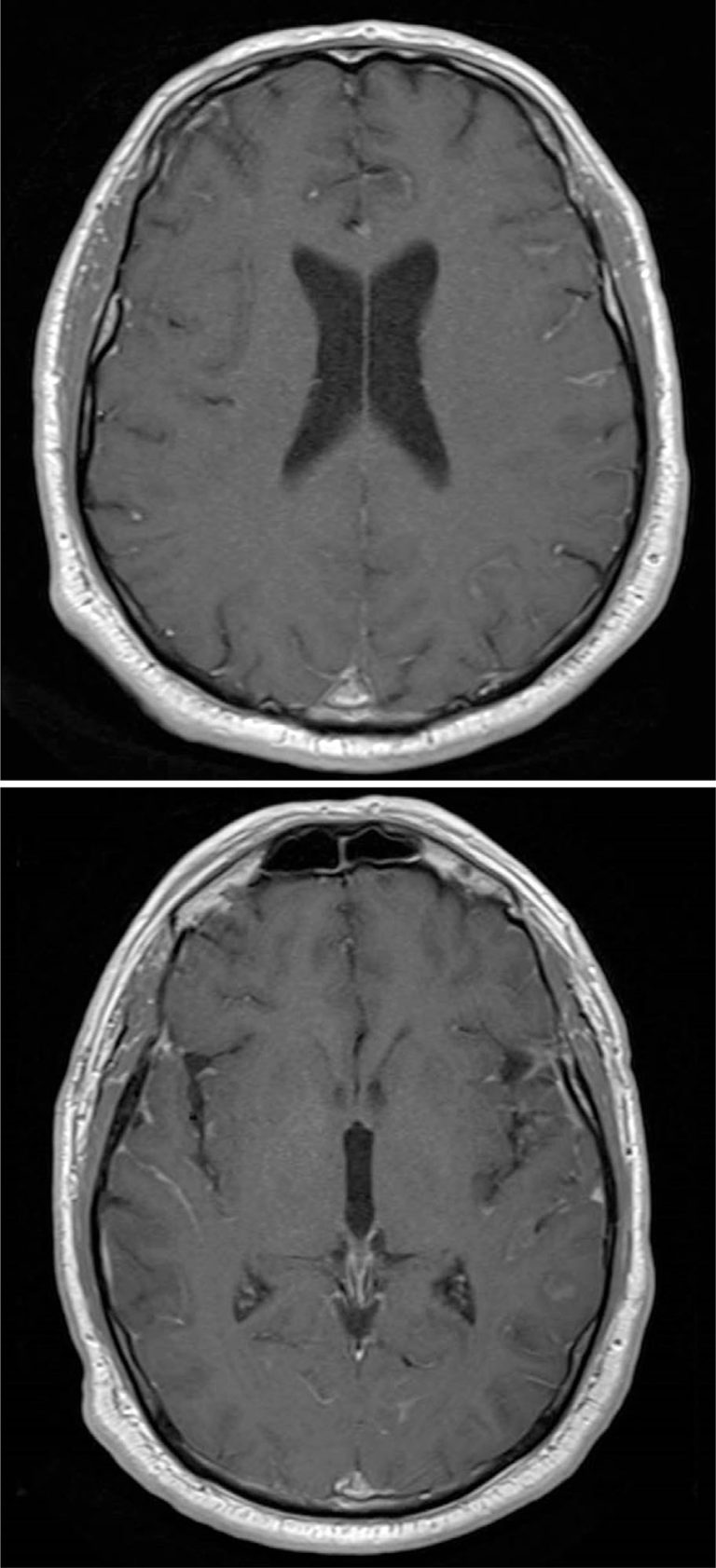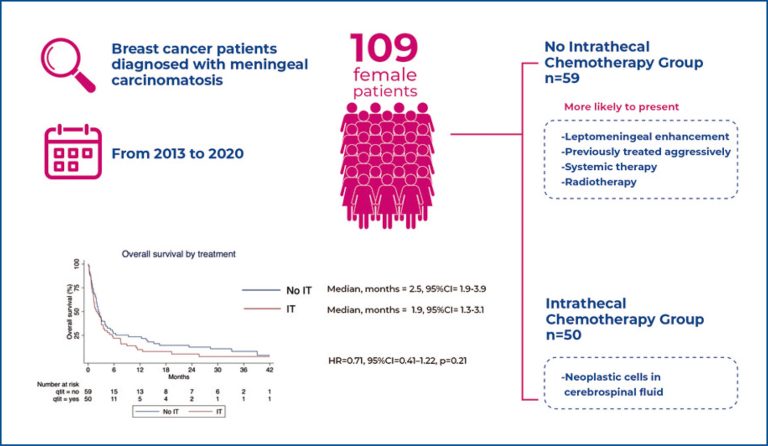2 results
23/Oct/2025
DOI: 10.31744/einstein_journal/2025RC1460
ABSTRACT This report presents a case of a 59-year-old male diagnosed with metastatic esophagogastric junction adenocarcinoma, who presented with mild dysphagia and vertigo. Brain magnetic resonance imaging initially showed no abnormalities. Upper gastrointestinal endoscopy revealed a vegetative lesion in the distal esophagus, and concurrent colonoscopy identified a laterally-spreading tumor in the transverse colon. Immunohistochemistry confirmed a poorly differentiated adenocarcinoma, suggesting an upper gastrointestinal origin. Further investigation of the worsening neurological symptoms led to the identification of leptomeningeal carcinomatosis via cerebrospinal […]
Keywords: Adenocarcinoma; Colon neoplasms; Colon, transverse; Disease progression; Esophageal neoplasms; Esophagogastric junction; Meningeal carcinomatosis; Neoplasm metastasis
19/Dec/2023
DOI: 10.31744/einstein_journal/2023AO0481
Highlights Intrathecal chemotherapy did not increase overall survival or time to neurologic deterioration. Compared with no treatment, systemic therapy with no intrathecal chemotherapy afforded better overall survival. Intrathecal chemotherapy should not postpone or preclude systemic treatment. ABSTRACT Objective: To evaluate whether intrathecal chemotherapy improves clinical outcomes in patients with meningeal carcinomatosis. Methods: This retrospective cohort study included consecutive patients with breast cancer diagnosed with meningeal carcinomatosis. Clinical and treatment data were collected from the patients’ medical charts. The primary outcome […]
Keywords: Breast neoplasm; Injections, spinal; Meningeal carcinomatosis; Metastases; Methotrexate; Neoplasm; Neurologic manifestations; Palliative care; Survival

